Cooperative Economics
Sharing Spaces, Sharing Values: Entrepreneurship at Dragon’s Nest Cooperative Homestead
Posted on July 18, 2014 by“Founder’s joy” can wear off very quickly in the chaos of financial instability and unclear agreements.
Southern Exposure Seed Exchange Wrestles with Growth
Posted on July 8, 2014 byFor an income-sharing group in Virginia, economic success presents challenges and opportunities.
The Entrepreneurial Dilemma
Posted on June 28, 2014 by2 Comments
Integrating entrepreneurial energy into cooperative communities often proves both difficult and necessary.
Cooperation and Competition in the Ecovillage
Posted on June 21, 2014 byEarning a living based on responsible competition involves both sharing what we have and asking for what we deserve.
Dancing Rabbit’s Exchange Local Money System: The Promise of Local Currencies and Interest-Free Financing
Posted on June 14, 2014 by4 Comments
Place-specific currencies can provide critical financing to the small businesses that keep local communities connected and thriving.
Business. Busy-ness. Coincidence?
Posted on June 5, 2014 byImproving our relationships to work, money, and entrepreneurship can dramatically enhance our sense of community and quality of life.
Margaret and Me: The Iron Lady Becomes an Unexpected Ally
Posted on May 11, 2014 byA squatters’ housing cooperative activist describes how Margaret Thatcher broke with her image to support an early “occupy” movement.
Yes, Wealthy People Want to Live in Community in Sustainable Ways Too!
Posted on June 7, 2013 by1 Comment
The facilitator of a telephone support group offers 14 suggestions from current or aspiring communitarians with significant financial resources.
The Values of Shared Ownership
Posted on June 7, 2013 byShared ownership—including of real estate—has many practical benefits.
The Integral Center, LLC Give Up Control
Posted on April 15, 2013 by“In a legally binding move, founders of The Integral Center, LLC have voluntarily relinquished their rights to control their company as owners. Instead they have ceded authority to a purpose-centered… Read More
Achieving Affordability with Cohousing
Posted on March 7, 2013 by6 Comments
Cohousing is intrinsically an affordable model; here’s why and how.
Affording Communities
Posted on March 7, 2013 byTogether—but only together—we can afford to keep publishing Communities.
Affordability: What It’s Good For
Posted on March 7, 2013 byAt Acorn, as in the larger world, the most important thing to be able to afford may be giving something away.
Creating a Community of Homesteaders
Posted on March 7, 2013 byA land trust with leaseholds keeps members’ costs down while allowing a combination of autonomy and connection.
Affordability: Angst and Angels
Posted on March 7, 2013 by2 Comments
Kara Huntermoon of Heart-Culture Farm shares her community’s affordability strategies.
Self-Reliance, Right Livelihood, and Economic “Realities”
Posted on March 7, 2013 by2 Comments
Life in a small rural ecovillage can mean embracing complex choices while balancing idealism with necessity.
Vision and Reality in Ecotopia
Posted on September 7, 2012 byInnovative ecovillagers turn challenges into opportunities.
Ecovillage Infrastructure
Posted on September 7, 2012 by1 Comment
Water supply, human waste treatment, zoning regulations, legal structure, homeownership models, and other core technical issues are essential in ecovillage planning.
The Sharing Gardens
Posted on December 7, 2011 by2 Comments
An innovative approach to collective community gardens nurtures a culture of giving while allowing participants to feed both themselves and those in need.
Unto the Second Generation
Posted on September 7, 2011 by12 Comments
When a cohousing group’s honeymoon ends, and economic stress dictates selling units to any willing buyers, can a community’s core values and connections endure?
The Gift of Compost
Posted on September 7, 2011 byTo the Compostmeister at a collective house, the cycles of compost embody a new economics that focuses upon human needs and relationships.
Which Comes First, My Community or My Career?
Posted on September 7, 2011 byBelieving that the next phase in human evolution involves a return to the “local” and to community with neighbors, the author focuses his job search close to home, and includes any useful type of work.
Crowdfunding
Posted on September 7, 2011 byA collective financial approach that allows individuals to pool their resources in support of favorite projects, crowdfunding both encourages and thrives upon community.
Remade in Edinburgh
Posted on September 7, 2011 byIn Brixton, South London, and Edinburgh, Scotland, right livelihood finds a home in innovative, resource-conserving, grassroots projects.
Work Less, Simplify More
Posted on September 7, 2011 by1 Comment
By reducing our economic impact, we can shrink our ecological footprint, while freeing up time and energy to contribute to community and a more sustainable world.
Right Lively ‘Hood
Posted on September 7, 2011 by1 Comment
Finding meaningful, socially and ecologically responsible work cannot be done in a vacuum. Right livelihood depends on networks of relationship.
A Communitarian Conundrum
Posted on June 7, 2011 by1 Comment
Despite widespread desire for community, structural and cultural obstacles to intentional community in the modern world loom large.
Shared Living—When Home Is a Community
Posted on September 7, 2009 by3 Comments
An ex-resident of Casa Caballeros reflects on the wealth she found in the realms of personal growth, shared resources, spontaneous celebration, and financial freedom even in economic downturns.
Hard Times at Orinda
Posted on September 7, 2009 by1 Comment
Watching their collective fortunes decline, the members of Orinda adopt a new spirit of frugality, find that they are living more sustainably, and discover true wealth in relationships with friends and family.
The Richness of Giving
Posted on December 7, 2008 byMany traditional cultures around the world have an economy based not on buying and selling, but on giving, which fosters an intricate network of social connections.

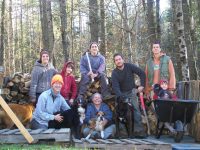


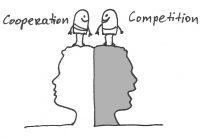
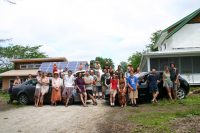


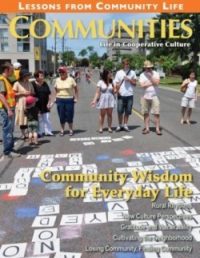








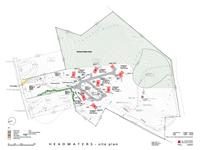

















 Nature, Belonging, Path to EU Residency, and a Beautiful Life– in Greece!!!
Nature, Belonging, Path to EU Residency, and a Beautiful Life– in Greece!!!
